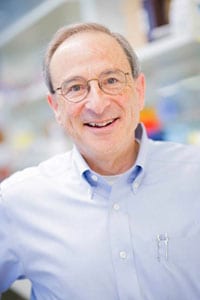America’s scientific community faces a historic opportunity to prove its value to society, thanks to the unprecedented role that President Biden has assigned to science in his administration.
Just days after taking office, Biden became the first president to name a scientific adviser to his cabinet, Eric Lander, the director of the Office of Science and Technology Policy. The move stands in stark contrast to the importance accorded science during the Trump administration. While the general public still holds scientists in high esteem, many may have lost confidence in the scientific enterprise. During the pandemic, people have had to proclaim they “believe in science,” a concept that most of us have taken as so obvious that it didn’t need to be said.

President Biden has laid out a vision for elevating the importance of science in this country, but Lander and others in the administration cannot do this alone. All scientists need to help find ways to educate Americans about the benefits and the mission of science. We need to make sure they understand the scientific method and how that has led to discoveries that have changed our world.
Not since the end of World War II has science been more important to the future of our country. Problems from global warming to devastating new diseases cannot be solved without major contributions from scientists. Moreover, new challenges to America’s position as the world’s economic leader from countries such as China will heighten the importance of scientific research in this country.
The first order of business is to step out from behind our microscopes and Petri dishes and engage the American public in more transparent and inclusive ways. It no longer should be considered sufficient for us to spend our days talking only to each other. Connecting with people will require scientists to become better listeners as well. Many scientists assume that people should listen to them because they are “experts,” but our society always has had a deep suspicion of people who act as if they’re smarter than others. We need to build bridges with society that supports our endeavors.
There were great scientists who were great communicators. Lewis Thomas was a physician and cell biologist who wrote wonderfully on his subjects in the 1960s and the 1970s. He found a way to make people come away from his writings saying, “Isn’t biology beautiful?” Carl Sagan, who taught at Harvard and Cornell and wrote more than 600 scientific papers, educated and entertained millions of Americans with his television shows about astronomy. Lisa Randall, a theoretical physicist from Harvard, has written popular books on her field.
“President Biden has delivered a call to action. We scientists need to rally around this amazing opportunity to deliver to society what it expects from us. It’s time to stop worrying about parochial, narrow interests and think about what’s good for the country.”
Brad Schwartz
But scientists don’t have to be celebrities to make a difference. Trust is built at a personal level and there are many opportunities for scientists to engage with people in places such as community groups or Boys and Girls Clubs. Although a scientist may reach fewer people with such interactions, the impact on each person can be greater. We have great stories to tell of the incredible things science has achieved, from breakthroughs in health to new materials. And so often the best discoveries came by accident.
Scientists who are leading our federal agencies need to stand up for the scientific enterprise as well. Now that we have been given a seat at the big table of government, we need to become more flexible and more willing to look beyond our own narrow interests. Let’s face it, America’s scientific community long has been marked by petty squabbling and infighting. The struggle for money and who gets credit for a discovery has hurt the public’s perception of our work and does not serve the interests of the nation.
It is not at all uncommon for program officers at federal agencies to discourage grant recipients from pursuing a particular line of research because it doesn’t fall within their area of responsibility, or out of concern for who might get credit. The councils of leading scientists who have tremendous sway at places such as the National Institutes of Health need to reinforce that such a narrow attitude can stand in the way of science delivering what society expects of us.
The rewards from breaking this mindset could be enormous. One of my favorite examples of this is the story of a rheumatologist who was testing molecules to see if they could help the autoimmune system. They didn’t, but they did knock out a certain group of lymphocytes. So he asked a hematologist if there was malignancy in this group of lymphocytes — maybe this molecule would work for it. Sure enough, it did, and a form of leukemia was pretty much cured as a result.
President Biden has delivered a call to action. We scientists need to rally around this amazing opportunity to deliver to society what it expects from us. It’s time to stop worrying about parochial, narrow interests and think about what’s good for the country.
Brad Schwartz is CEO of the Morgridge Institute for Research, a private, nonprofit research institute dedicated to interdisciplinary biomedical research in partnership with the University of Wisconsin–Madison. A physician-scientist, he is committed to the mission of public research universities. Originally published in The Hill.
